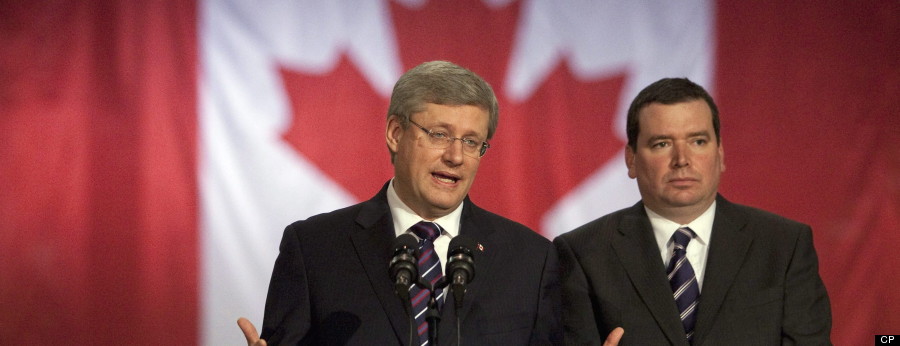The PBO report, issued earlier this month, offers a contrast to the high-profile big-ticket aid projects touted by the Harper government, including its multibillion-dollar commitment to the health of children and mothers in poor countries.
The report says that in the first six months of the last fiscal year, spending on poverty reduction shrank 23 per cent.
It also says Canada's overall foreign aid as a percentage of GDP has dropped off since Prime Minister Stephen Harper announced his Maternal, Newborn and Child Health Initiative (MNCH) in 2010.
In 2010-11, foreign aid stood at 0.34 per cent of GDP, declining to 0.27 per cent in 2013-14.
The report says that planned spending decreases mean the rate will fall even further.
As a result, the Conservatives are flirting with driving down Canada's overall aid spending to some of its lowest levels since the Liberal era, when it fell below 0.25 per cent at the start of the last decade.
That's well below the 0.7 per cent of GDP that United Nations Secretary General Ban Ki-moon said he would like to see Canada and other rich countries meet when he shared a podium with Harper last year in Toronto at the prime minister's international MNCH conference.
Harper committed $3.5 billion over five years to 2020 to the cause, his signature aid initiative, at the Toronto conference last year.
One of Harper's major supporters is the Bill and Melinda Gates Foundation.
In an interview this week, Melinda Gates offered gentle criticism of the decline in aid overall spending, even as she emphasized that Harper has shown global leadership on the issue of maternal, newborn and child health.
"I think Canada has honestly done quite a great job in some of these areas," said Gates.
"I'd love to see other ones moving up. But we'd never want to see a country go back down or slide backwards because it's just not the right message.
"Even when a country goes through its own tough times, we still have the moral imperative to fund foreign aid around the world because having prosperous and stable societies just makes sense."
NDP foreign affairs critic Paul Dewar accused the government of using high-profile spending announcements as cover for more pervasive cuts to aid funding.
"That's why it was important for me to see the citation of the parliamentary budget officer. The PBO speaks truth to power and the numbers don't lie," said Dewar.
"Overseas development assistance should be done in a way that has high impact with people we're trying to help. The government's approach is, 'We're trying use overseas development assistance for high impact for the promotion of the government.'"
Only a handful of countries have reached the 0.7 per cent target, the most recent being the United Kingdom, the first G7 country to do so. Its House of Commons passed a bill late last year that would affirm the spending commitment.
Dewar questioned why Canada was cutting its aid spending when its economy was outperforming that of Great Britain.
"It also undermines our credibility because there is a price you pay when you cut funding for overseas development or for any kind of diplomatic engagement. It means that you're not seen as a responsible actor," said Dewar, adding that the NDP included the 0.7 commitment in its last federal election platform.
Harper has said that Canada chooses to target its foreign aid spending at programs that produce measurable results.
The department of Foreign Affairs said it did not agree with the report's findings.
Original Article
Source: huffingtonpost.ca/
Author: Mike Blanchfield

No comments:
Post a Comment